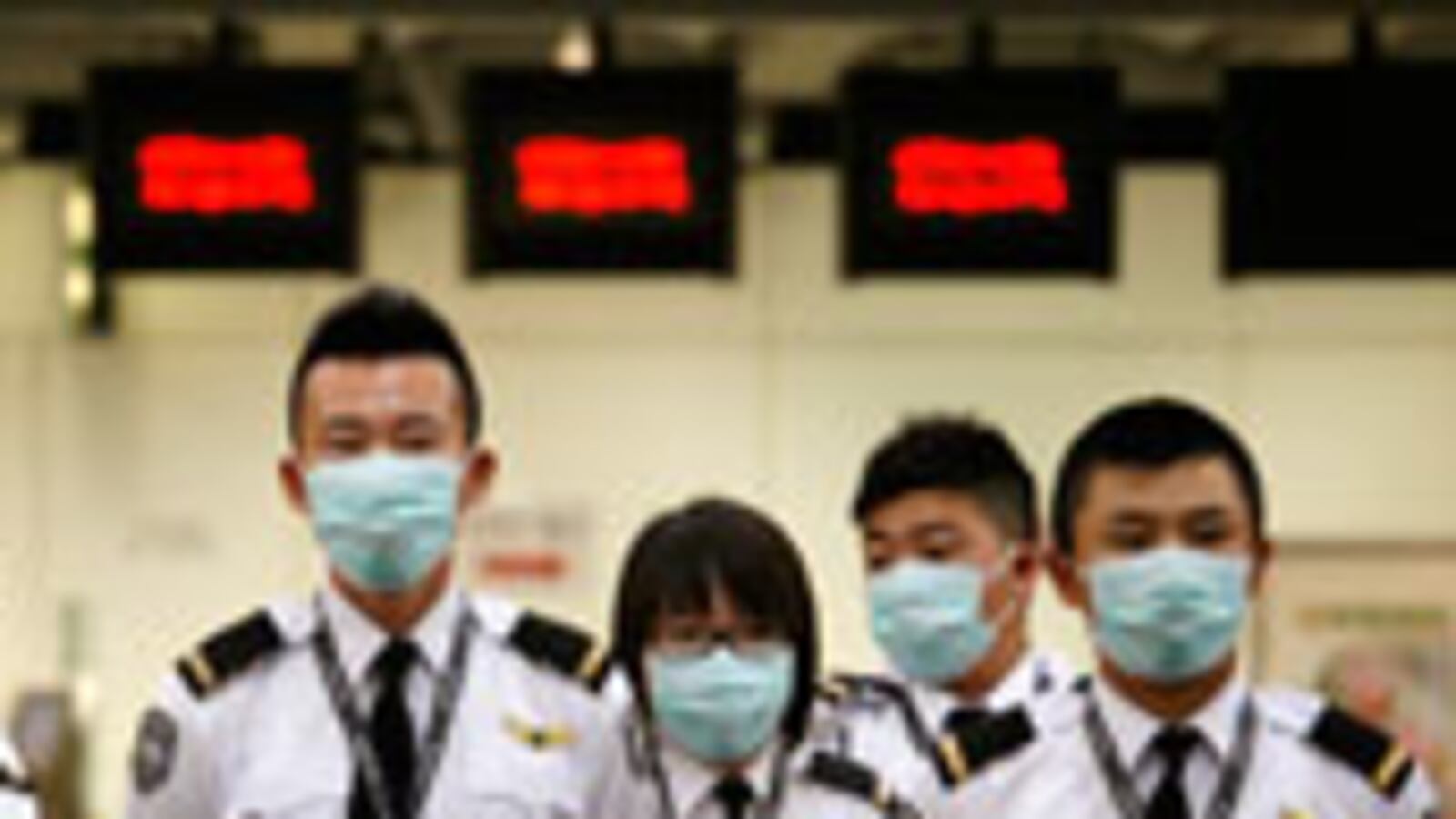
There was a moment this week, as the Chinese Politburo burst from its meeting on the swine-flu crisis like a football squad coming out of a huddle, when it was really impossible to miss the feeling that crisis management is what Beijing does best—and that, strange as it may seem, perhaps there is something Washington can learn by watching.
Faced by one surprise after another for the last 30 years, the Communist Party of China has mastered the skill of coping with the unthinkable. Arguably, it’s the thing they do best—and that they have to do best to stay in power and in control. Political life in China is a race now between the exploding complexity of daily life and what the government can manage. It’s too early to call this pandemic response a "win," but the urgent energy of the party this week tells us a lot about China and, maybe more important, something interesting about how to deal with a world of constant crisis and risk.
In the West, we tend to think crises are exceptions to the usual stability of the world, like earthquakes on a normally stable continent. Chinese see surprise events as a constant and a given.
Here are the three key lessons from Beijing:
1) There’s a difference between strong reaction and overreaction.
Clearly the U.S. reaction to the crisis—Joe Biden notwithstanding—was driven by a desire to keep Americans from overreacting. Beijing prefers to err on the side of a little too much worry on the part of its citizens. (Friends of mine this week were cancelling trips to the U.S. from Beijing, worried about “unsafe” American airports.) To some degree, crisis reaction is political theater—it’s a chance for top leaders to demonstrate how “on top” of dangerous events they are and thus boost their legitimacy, always a top priority and as true in the U.S. as in China. But a lot of what happened this week in China was sensible, if intense crisis management: increasing production of pandemic-prevention supplies, boosting hygiene efforts, expanding reporting systems. The overall message was “this is serious and we’re on top of it,” which was a contrast with the “this will go away soon and we’re on top of it” coming from Washington.
2) It’s not about THIS crisis.
Part of the reason Beijing reacts so strongly is that they are preparing the country for not only this crisis but for all the crises they may one day face, some of which they know will be much worse than this one. It’s a psychological difference: In the West, we tend to think crises are exceptions to the usual stability of the world, like earthquakes on a normally stable continent. The Chinese see surprise events as a constant and a given. Partly this is because China is changing so fast and is confronted with so many unknowable risks that the country needs to be constantly primed for the unexpected. But also it’s an expression of some very old Chinese ideas. The most ancient book of Chinese philosophy, after all, is The Book of Changes.
Chinese writers and commentators this week pointed out that we’re almost exactly at the one-year anniversary of the Sichuan earthquake, which was a watershed for the government: They reacted quickly, let civil society play a role (larger then they probably wanted), and used the media to sell the reaction story. I lived through both the quake and SARS in China and the reactions were completely different. What China learned from SARS was the importance of speed, good quality reporting, and the idea that, by definition, crises hit you unexpectedly, so you need to be “always on”.
3) Link your strategies.
One of the famous “36 strategems” runs like this: lian huanji. It means tie your big ideas together into a strategic plan. And this is exactly what Beijing is attempting to do. China has a lot going on right now—the economic crisis has triggered tremendous political debates and real uncertainty about the economic reform project in top circles. It’s fired off anxieties about social problems, political reform and the future of China’s role in the world. So Beijing this week also executed a “linking strategies” gambit.
The flu response was woven into other new stimulus and health-care programs that the government is trying to expand as quickly as possible. China announced plans to help develop a world-class detection method—which, true or not, showed a sensibility about the disease as a global issue. This sort of linkage between policy aims was largely missing in Washington. Obama is sensibly trying to repair health care, to improve the Department of Homeland Security, and to lay the foundation for civil volunteerism on a grand scale. All of these are valuable aims for managing crises and should have been tied into the H1N1 reaction, Chinese-style.
It’s an odd idea that we can learn from Beijing. And there is certainly plenty that we don’t want to learn. But we should give them credit for knowing how to respond to a crisis—and that can tell us an awful lot about how best to do it ourselves and how to think about the future of China, where instability will be a problem for years to come.
Joshua Cooper Ramo is managing director and a partner at Kissinger Associates, one of the world's leading strategic-advisory firms. Prior to joining Kissinger Associates, he was assistant managing editor of Time and worked in the advisory and banking business in China.






